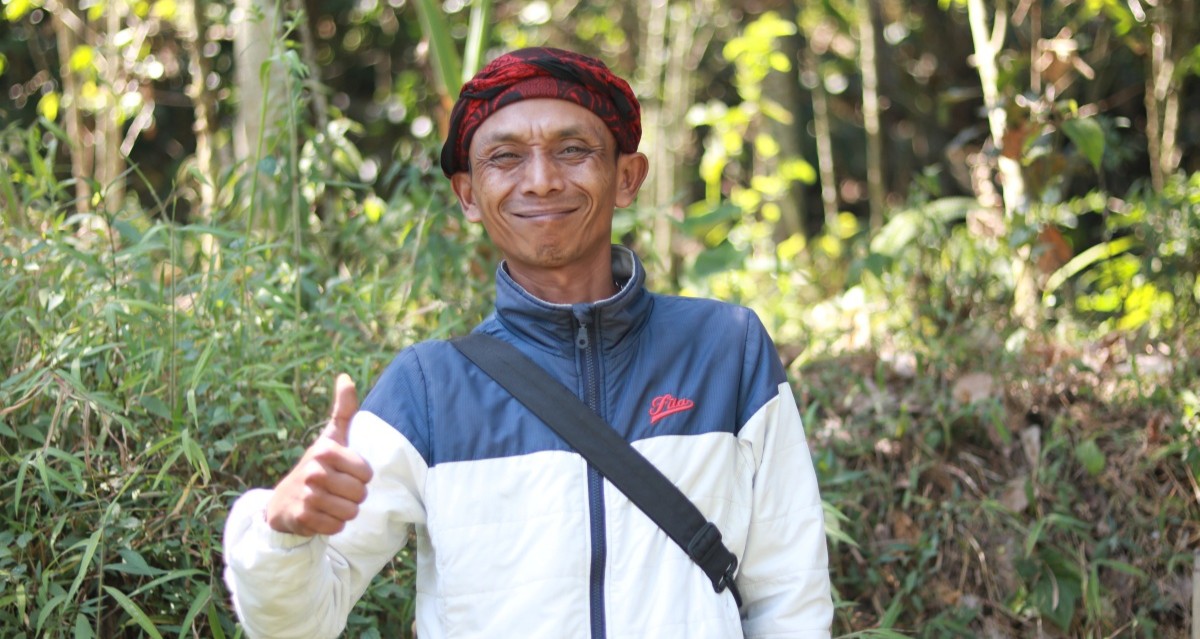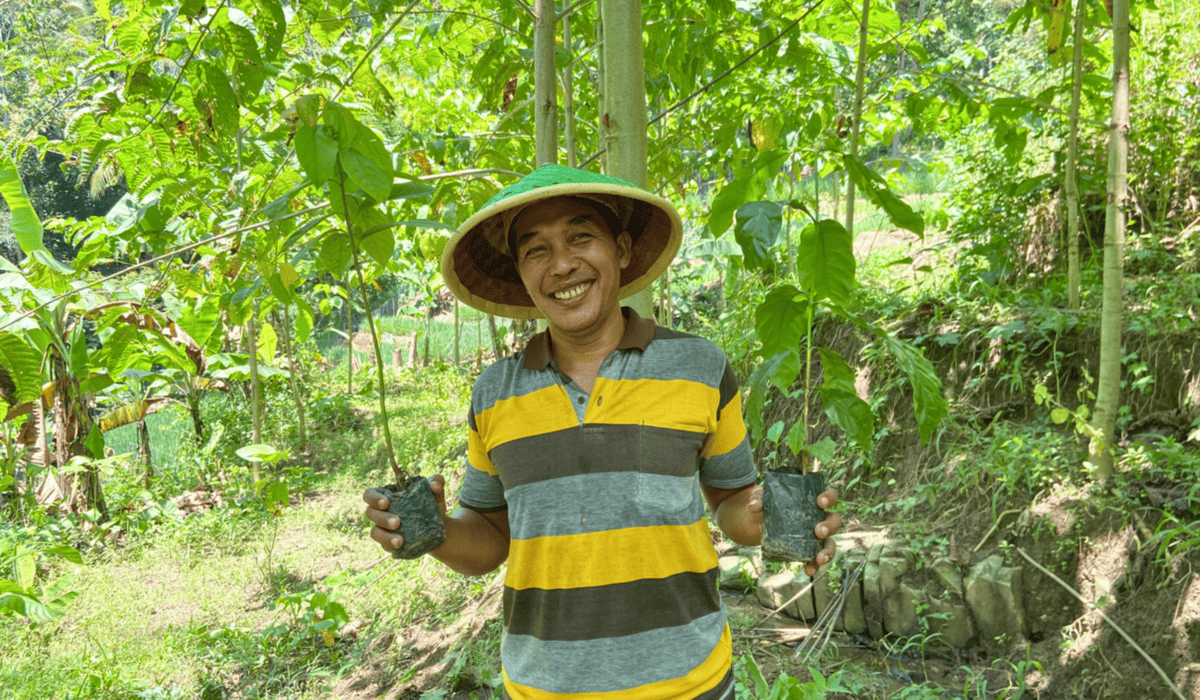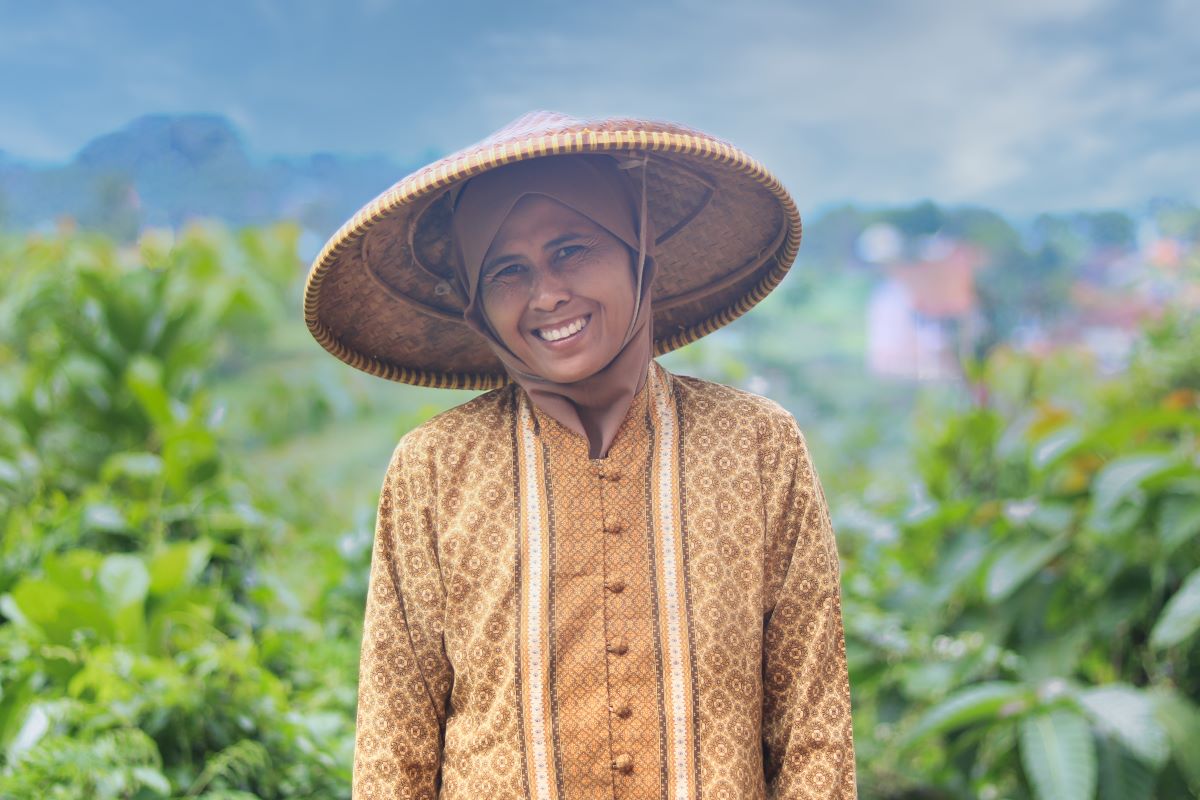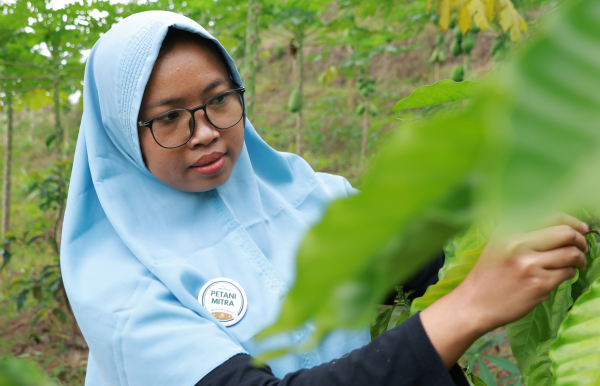
It was like any other season in Gunungsari Village, Kebumen. The long dry season had turned the trees brown, and the land was starting to crack from the lack of moisture. Despite the harsh conditions, the villagers remained committed to their fields, and farming as they always had. While preparing together with the team, we joked with each other and said hello to the villagers who passed by around us. Not long after that Imah joined us, with a shy smile.
“Sorry to keep you waiting, I was finishing up some cooking,” she said.
In supporting the role of women, Trees4Trees emphasizes their involvement by partnering with local women, like Imah. A loving wife and a persistent farmer; that is what she is. Together with Lailatul KH, Trees4Trees’ Field Coordinator, she worked hand in hand to keep Gunungsari Village green. Besides joining Trees4Trees, Imah also actively participated in community activities like the PKK (a village women’s association).
According to Imah, women are the backbone of the rural economy, especially in the agriculture role. Beyond farming, women are efficient in managing household finances and ensuring food security for their families. Today, Imah contributes to her household income by selling agricultural produce while her husband focuses on cultivating their fields. For her, women farmers can support other micro-businesses, such as food production, crafts, and various other village-based enterprises.
Despite her accomplishments, Imah acknowledges the challenges women face, including gender inequality, education gaps, and limited access to farmland. Often, women are underestimated in their ability to manage land. However, the most significant obstacle that affects their farming economy is competition with large businesses that tend to manipulate harvest prices.
“I once joined a women farmers’ empowerment program from both government and non-governmental organizations, including Trees4Trees. Through these programs, I gained valuable skills that can be used to improve my future endeavors,” Imah shared.
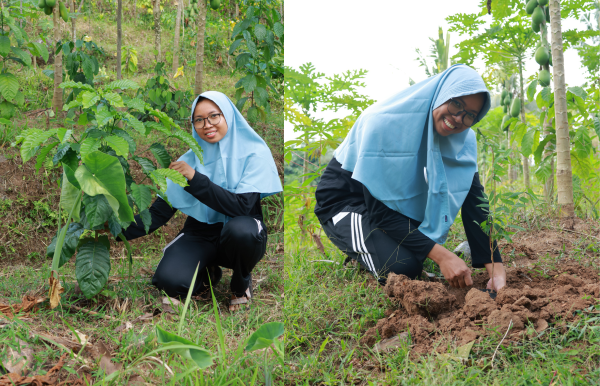
Women’s contributions to the household are significant, and so are their roles in other areas.
She believes that women’s contributions make up 50% of the overall effort in farming, where they serve and assist in the fields, boosting family income and inspiring other women farmers.
“We need support and encouragement to not be afraid of becoming farmers. Farmers can succeed, and we need society to appreciate the work of female farmers,” Imah expressed.
Imah joined the Trees4Trees program two years ago, motivated by her desire for more experience and the availability of new tree species that were not previously accessible. Through the program, she has received hundreds of trees, including suren, coffee, and sengon, as well as corn crops that provide essential food supplies for her family.
“Before this, I only planted cassava. Now, my land is filled with trees from Trees4Trees,” Imah said happily. Her hope in participating in the program is to become a modern, progressive woman farmer and build a strong household.
“The benefits are not yet fully felt, but at least the money that would have been spent on buying seedlings can now be used for other needs,” she explained.
“Through these programs, I gained valuable skills and met other women farmers like myself. I have also participated in household economic management training with Trees4Trees and hope to join their upcoming workshop on utilizing corn waste for briquette production, as I manage the corn provided by Trees4Trees.”
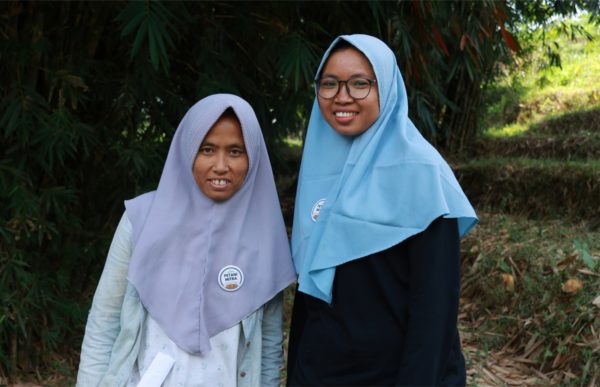
A hardworking and devoted wife.
Lailatul KH, the Trees4Trees field coordinator, added, “Bu Imah is hardworking, devoted to her husband, and often helps him in the fields.”
She hopes that more women will join the program, recognizing the significant role they play in farming. Tasks like weeding and harvesting are heavily dependent on women, and by increasing the number of women participating in these programs, productivity and family welfare will improve.
Imah is a living example of how a woman is supported with the right resources and trusted for her abilities to succeed, she not only transforms her own life but becomes an example for so many others to take charge of their paths.
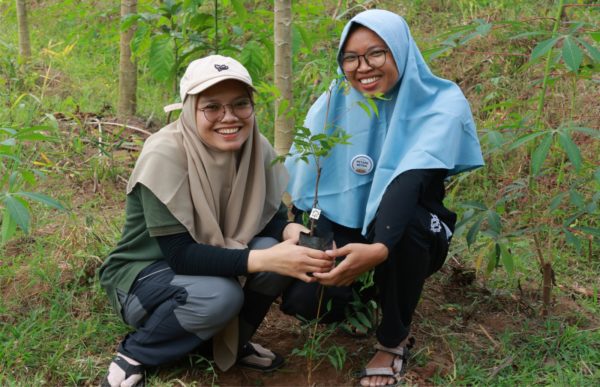
Written by Teresia Miranti | Source compiled by Lailatul KH | Photograph by Y. Desennita

